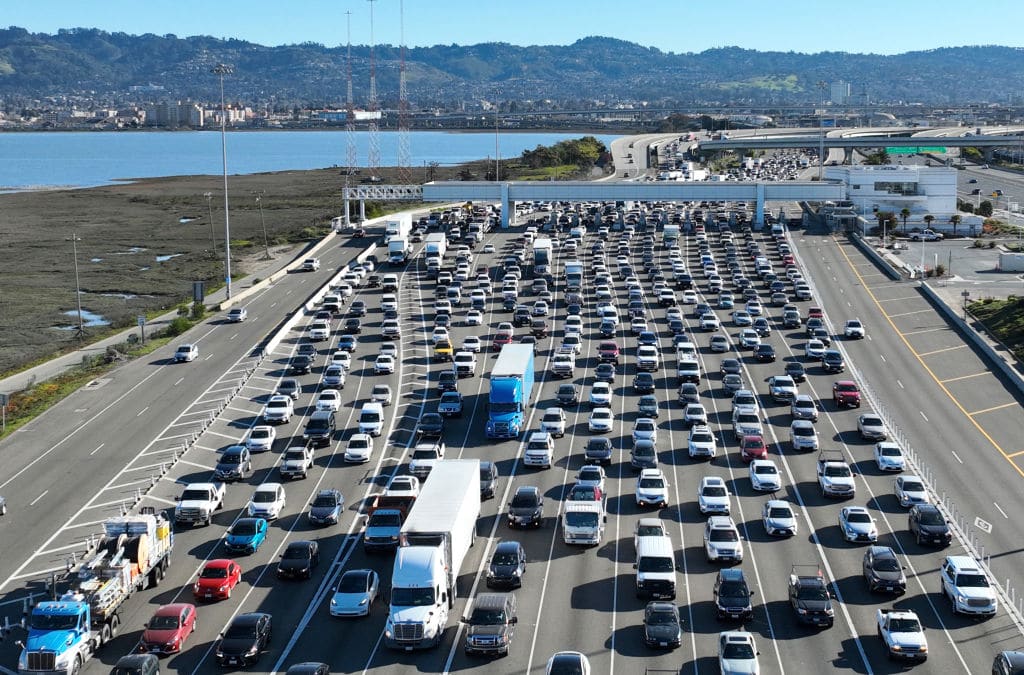

California has put forward a plan to phase out new sales of gas-powered cars by 2035.
Regulatory agency the California Air Resources Board (CARB) announced a proposal Wednesday that would mandate that 35 percent of new cars sold in the state be battery or hydrogen powered by 2026. This would propel the state towards the goal of ending new sales of gas-powered vehicles by 2035.
“This is tremendously important,” CARB member and University of California, Davis Institute of Transportation Studies director Daniel Sperling told The New York Times.
The new plan sets out to realize a goal set out by California Governor Gavin Newsom in a 2020 executive order, which made California the first state in the nation to set out to end new sales of gas-powered vehicles. Transportation accounts for around 50 percent of the state’s greenhouse gas emissions and 80 percent of the emissions that contribute to ozone, according to the proposed rule.
“Emissions from motor vehicle engines hurt public health, welfare, the environment, and the climate in multiple interrelated ways,” CARB wrote, noting that warmer temperatures make ozone pollution harder to curb and fuel wildfires that release more particulate matter.
Currently, electric vehicle sales in the state are on the rise, increasing from 7.8 percent of new-car sales in 2020 to 12.4 percent in 2021, CNBC reported. The proposed rule would see them rise to 68 percent of new car sales by 2030.
“There’s no excuse for California to take the slow road to an all-electric future when we’re being gouged at the gas pump and facing epic drought and wildfires.”
The proposal still has to be voted on by CARB in August, but if it is approved, it could also influence the national and international car market. New York, Pennsylvania, New Jersey and at least 15 other states have followed California’s clean car regulations in the past.
“Other countries and other states, they watch what California does,” Sperling told The New York Times. “And so this will reverberate around the world.”
However, some environmental groups said the plan was not ambitious enough and was not consistent with California’s goal of achieving carbon neutrality by 2045.
“There’s no excuse for California to take the slow road to an all-electric future when we’re being gouged at the gas pump and facing epic drought and wildfires,” Scott Hochberg, a transportation lawyer with the Center for Biological Diversity’s Climate Law Institute, said in a press release. “The nation needs strong rules from California that force auto companies to make the electric vehicles we need. California has to lead on clean cars, or we’ll all be left choking in the dust.”
The Center for Biological Diversity, along with the Greenlining Institute, Let’s Green CA, EV Hybrid Noire and California Nurses for Environmental Health and Justice, is calling for CARB to push the ban on new gas-car sales up from 2035 to 2030, arguing that this is necessary because gas-powered cars stay on the road for 15 to 20 years once they are purchased. The coalition also wants CARB to set robust pollution standards for gas-powered cars and make it easier for people in disadvantaged communities to purchase electric vehicles.
California is currently experiencing the impacts of the climate crisis directly. It is in the midst of the West’s worst megadrought in 1,200 years and is bracing for yet another devastating wildfire season.

 233k
233k  41k
41k  Subscribe
Subscribe 